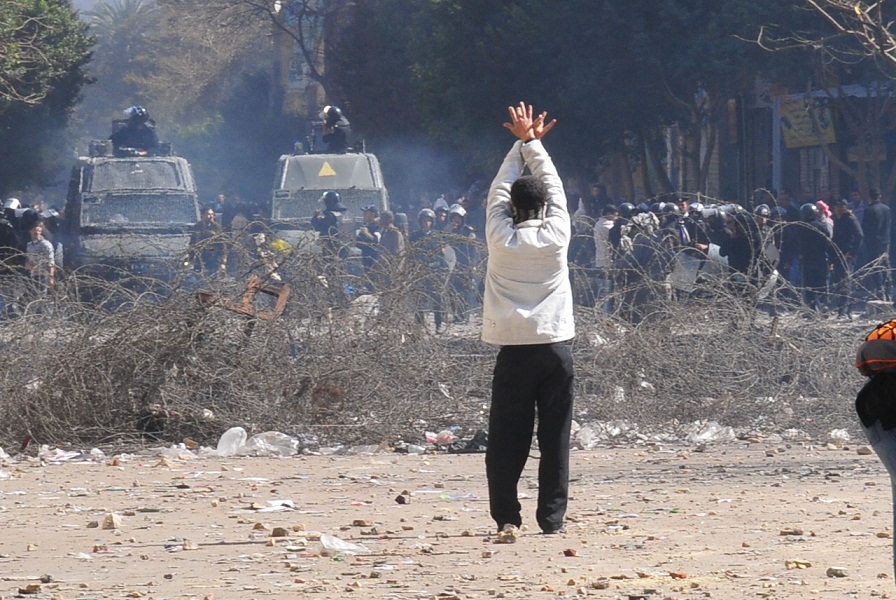CAIRO: A Cairo court on Monday sentenced eight of 14 defendants to jail terms including four life sentences, for their role in the April 7, 2005 Al-Azhar’s bazaars suicide bombing that killed three foreign tourists and wounded 11 others.
The court handed down lesser custodial sentences of between one and 10 years to four of the accused, ordered five released, including two women, and delayed sentencing to November 20 on another who is currently in hospital.
The 14 accused risked the death penalty that was expected to be given to them.
Police removed those who had been sentenced from the dock in the packed courtroom as they shouted their dismay at the verdict, while those ordered freed shouted God is the greatest.
The courtroom was overflowing with relatives of the accused who broke down in tears as the sentences were handed down. No relatives or representatives of those killed in the blast were present.
Ahmed Sayed, lawyer, told Daily News Egypt that he doubts the credibility of the Ministry of Interior which had prosecuted them, since the Al-Azhar bombings were a public opinion case and the ministry is obliged to come up with suspects to appease the public.
The Ministry of Interior and the Egyptian Intelligence Service do not show any evidence to the public and most of the arrests took place without the prosecution s permission [which violates Egyptian law], Sayed said.
So it is very easy for the Ministry to forge evidence and frame innocent people, Sayed added.
Sayed has also indicated that the evidence and investigation of political and public opinion cases like those of Ayman Nour or the Muslim Brotherhood leaders are shrouded in secrecy.
I doubt the truth behind these charges and the trial, Sayed said.
The 14 are accused of belonging to an unlawful group, of using force and violence to disturb public order and threaten the security of the state and of ownership of weapons with the intention to be used in terrorist operations.
The Al-Azhar bazaars bombings were the first to target foreigners in Cairo in seven years and were seen as aiming the Egyptian economy which is heavily dependent on tourism.
On April 30, a man wanted in connection with the first bombing exploded a device while being chased by police in downtown Cairo, killing himself and wounding seven people, four foreigners and three Egyptians.
Less than an hour later, two women died while carrying out an abortive shooting attack on a tourist bus near the Citadel.
It was pointed out that the two women were the sister and fiancé of the dead suspect. After police opened fire, the sister shot dead her fiancé before turning the gun on herself.
The suspected mastermind of the attacks, Ashraf Said Yussef, had been captured the day before after throwing himself out of an apartment window to escape police.
He died in police custody days later from what police said were self-inflicted injuries.
Now no one is sure if those people [mentioned above] were really involved in the bombings or were just scapegoats to win public opinion, Sayed added. With additional reporting by AFP
